CNN
—
About six months after he was elected head of the Catholic Church, Pope Francis made a surprising admission.
A Jesuit priest was interviewing Francis when he departed from a pre-approved list of questions and asked Francis, referring to him by his birth name, “Who is Jorge Mario Bergoglio?” Francis stared at the fellow Jesuit in silence before answering.
“I am a sinner,” Francis said in the 2013 interview. “This is the most accurate definition. It is not a figure of speech, a literary genre. I am a sinner.”
When Francis DeBernardo, executive director of New Ways Ministry, a Maryland-based Catholic group that advocates for LGBTQ+ people, learned of Francis’ response, he was elated.
“For the pope to acknowledge that he was a sinner and that he does not know everything, I’ll always remember that,” DeBernardo says. “So much of Catholic culture is ingrained with this idea that the pope is always infallible. For him to say he was a sinner meant that he acknowledged his fallibility. It was a sign of humility.”
Pope Francis didn’t affirm same-sex marriage, lobby for ordaining women as priests or spark a liberal revolution in the Catholic Church. The pontiff, who died Monday at the age of 88, periodically disappointed some of his most progressive church supporters. One critic said that Francis “was at heart a conservative” who had a habit of floating a progressive idea and then angering the left by retreating as soon as that idea was met by a pushback from the right.
Yet DeBernardo and others say Francis still lived up to his nickname as the “Great Reformer.” They say he leaves behind a progressive legacy that transformed the Catholic Church for its 1.4 billion followers. That legacy is centered on one transformative shift, they say: Francis changed how Catholics talked to one another, and what issues they focused on.
Before Francis, many Catholic Church leaders dwelled on culture-war issues such as abortion and birth control. Francis elevated climate change to a moral issue, denounced unfettered capitalism and increased financial transparency within the Vatican. He also pressured church leaders to listen more to ordinary church members instead of simply issuing edicts, declaring that “We priests are not the bosses of the laity (lay people).”
He inspired much of this change through two distinctive personal attributes: a refreshing humility, and a compassion for all that led him to be called the “pope of peripheries” — a leader who spoke and acted on behalf of far-flung groups traditionally shunned by the church.
Pope Francis’ life in pictures
Francis’ approach was apparent in the way he carried himself. Maybe part of it was his place of origin. He was the first pontiff from Latin America. He brought a warmth and pastoral accessibility to the papacy that was missing in his two predecessors: Pope Benedict XVI and Pope John Paul II, says Natalia Imperatori-Lee, a religious studies professor at Manhattan University in New York City.
Part of that humility came in his ability to admit mistakes, she says. He once apologized for remarks he made defending a bishop accused of covering up sexual abuse by members of the clergy. He also apologized to survivors of clergy sexual-abuse scandals.
“He was upfront about his mistakes, which was a good sign,” she says.
He also broadened the church’s appeal through his approachable manner. Instead of the luxury cars used by his predecessors, he rode around in a simple Ford Focus. He seemed happy to pose for selfies with admirers. And he sought to build bridges to other faiths, once saying, “All religions are paths to God.”
Imperatori-Lee says that Francis transformed the Catholic Church’s image.
“For a long time, Catholics were only known for their don’ts — don’t be gay, don’t have an abortion, don’t get a divorce,” she says. “Francis unlocked a different kind of Catholicism in the public square. He was somebody who appealed to non-Catholics and Catholics. He was just a decent person.”
Francis led the church to new frontiers in another way: many saw him the first “digital pope.” While Jesus may have used parables and the Apostle Paul used letters, Francis used social media to spread the Gospel.
He was the first pope to use Facebook Live and the first to share an encyclical (a papal letter written to bishops) through a Twitter account. He once called the Internet a “gift from God.” He had more than 53 million followers across nine official Twitter, or X, accounts in multiple languages and another 10 million followers on Instagram. One headline called him an “internet rock star.”
In some ways, Francis was the perfect pope for the social media age. He was not afraid to challenge powerful people and institutions through actions and remarks that often went viral and spawned memes.
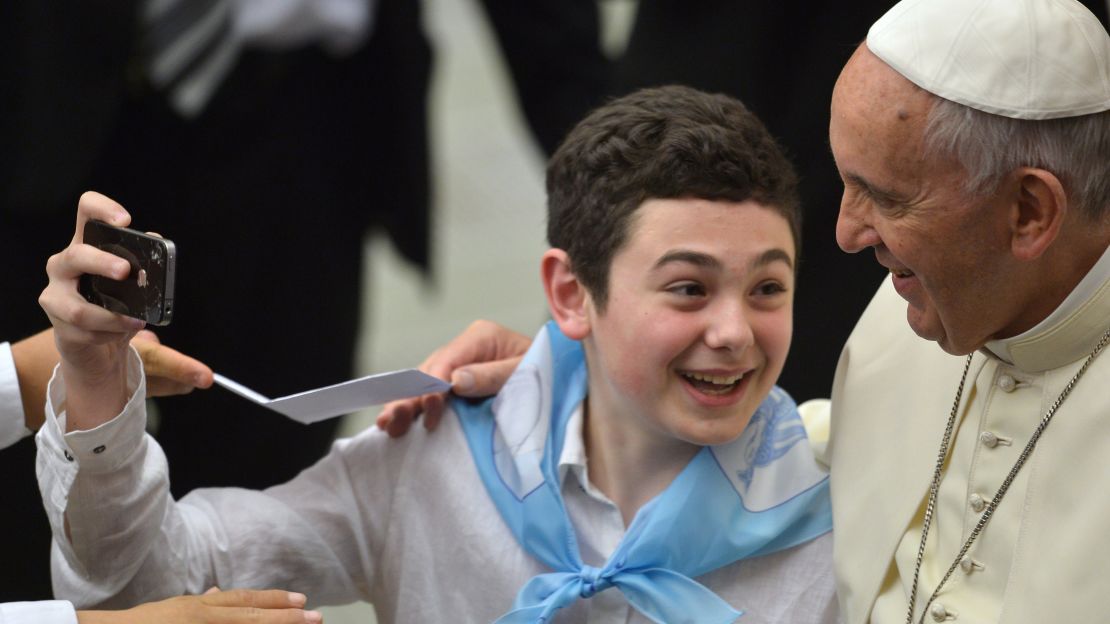
He denounced President Trump’s demonization of non-White immigrants. And, in a move perfect for grabbing attention in a crowded media space, he once traveled to a Mediterranean island where the lives of many immigrants had been lost. Upon arrival, he celebrated mass on an altar made of refugee boats.
He was known for dropping progressive bombshells. Early in his papacy he said atheists can go to heaven if they lead honorable lives. That same year he also said: “If someone is gay and he searches for the Lord and has good will, who am I to judge?”
In a 2024 interview with CBS’ “60 Minutes,” Francis explained his progressive temperament. When informed that some conservative bishops in the US had complained he was shifting church doctrine in a liberal direction, he responded by saying the term “conservative” can be defined as someone “who clings to something and does not want to see beyond that.”
“It’s a suicidal attitude,” he added. “Because one thing is to take tradition into account, to consider situations from the past, but quite another is to be closed up inside a dogmatic box.”
The most radical part of Francis’ legacy might not have been what he said, but how he changed the way the church communicated.
Francis’ most momentous change arguably came when he opened dialogue on church and social issues through something called the “Synod on Synodality.” Though the Synod, Francis summoned priests, bishops, lay people and women to engage in an ongoing debate about some of the biggest issues facing the church, such as the blessing of gay couples and priestly celibacy. Some called the synod “the biggest consultation exercise in human history.”
“At each of those meetings, he (Francis) told bishops, ‘I want to hear your opinions even if you disagree with me,’” says DeBernardo from New Ways Ministry. “That was something that would not have been said under John Paul II or Benedict. During those two papacies even bishops were afraid of expressing their minds for fear of getting in trouble.”
Some Vatican historians described the Synod as “transformative” and a “momentous innovation.” It upended the traditional hierarchy in the church and forced bishops to listen and engage in open debate.
“He (Francis) didn’t think the disagreements made the church look weak,” says Imperatori-Lee of Manhattan University.
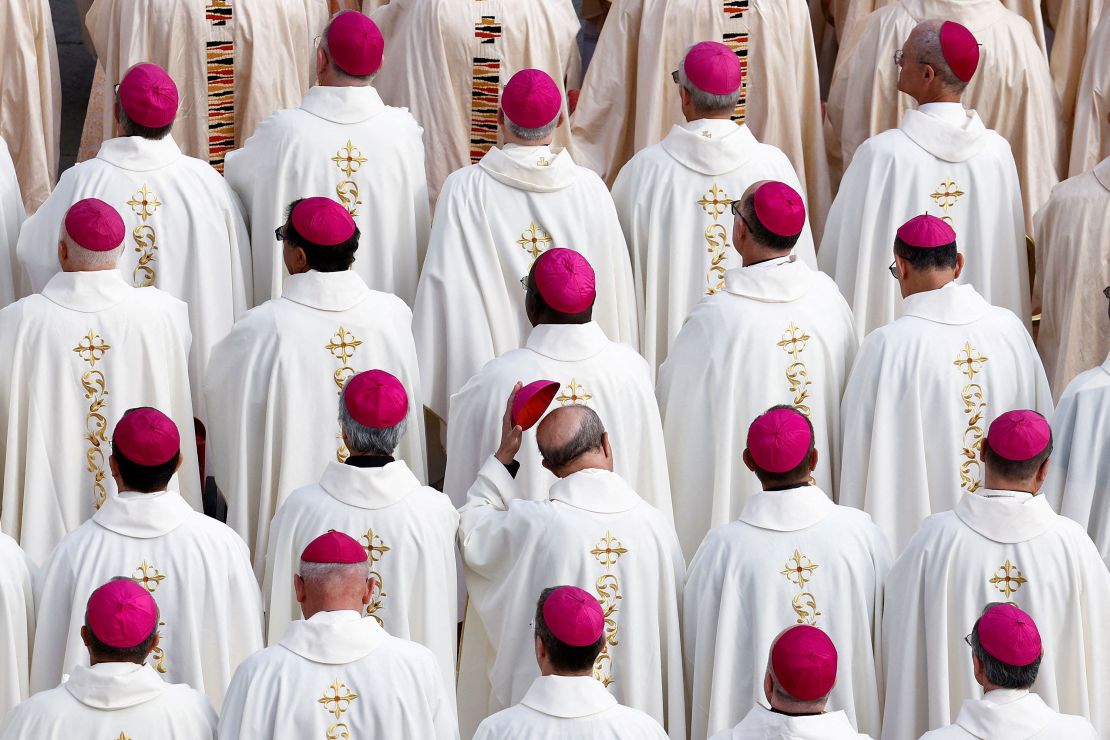
To an outsider, Francis’ progressive statements may not have seemed radical. But DeBernardo says Francis broke ground by gently steered the Catholic Church to be more open and accepting. The church was emerging from a conservative period under the papacies of John Paul II and Benedict XVI that had made it difficult to connect with the modern world, he says.
“He’s a reformer who recognized that the church needed to start with very small steps,” DeBernardo says. “He took small steps, but he had a very powerful impact. He found a way out of the corner that the previous popes had the painted the church into.”
Though they wanted Francis to do more, DeBernardo and other progressive Catholics say they recognized his limits.
“Part of being the pope is to be a symbol of unity in the church,” DeBernardo says. “It’s not to be a dictator and tell people what to do. He was a bridge, and so his job was to bring together progressives and conservatives. It wasn’t possible for him to go as far as we hoped he would go. He recognized that there was a lot of opposition. He didn’t want to split the church.”
Francis’ compassion made him popular among many in the church, but there was a bitter irony to his progressiveness — it made him a more isolated figure on the world stage, some say.
Francis became “an increasingly lonely moral voice” in a world that was being engulfed by nationalism, disinformation and xenophobia, wrote David Gibson, director of the Center on Religion and Culture at Fordham University in New York City, in an essay written after the pope had fallen ill with a lung infection in March.
“A world without a pope like Francis will in some ways resemble a Hobbesian dystopia without a prophet pointing to our better angels or a sensible idealist showing a better way,” Gibson wrote.
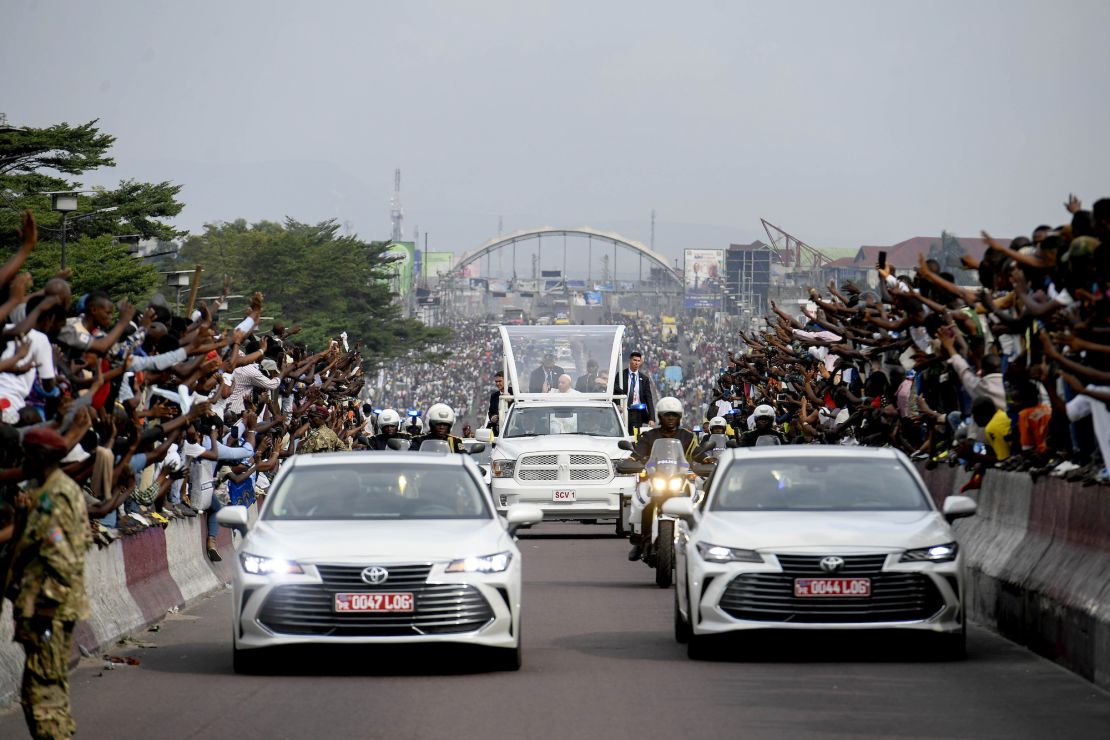
For others in the church, Francis’ presence on the world stage took on a more hopeful meaning.
Kate McElwee, executive director of the Women’s Ordination Conference, a movement that calls for gender equality in the Catholic Church, said Francis sent a message by traveling to places with relatively small Catholic populations, such as Mongolia, Indonesia and Singapore, where Catholics feel marginalized.
“He was a refreshing voice in a world that seems more and more chaotic,” she tells CNN. “He’s the pope of the periphery, and he modeled that by going to the farthest comers of globe to accompany people.”
McElwee, however, says Francis was trapped in his own dogmatic box when it came to one vital issue: ordaining women as deacons and priests in the church.
She praised him for opening high-level offices in the Vatican to women and for appointing the first woman governor of Vatican City. But McElwee says she wanted more reform. So did others.
Progressive Catholics have been pushing for women to be ordained as deacons and priests for years. They say women were among Jesus’ first disciples and some of the earliest church leaders. Traditional Catholics resist such calls, pointing to the “Petrine” theory — a church teaching that insists that Jesus granted a man, the Apostle Peter, special authority to become the first pope to lead the church.
Francis let Catholics like McElwee down, again and again. He never abandoned traditional church teachings on women in leadership. He said women could not be priests or deacons. When he was asked during last year’s “60 Minutes” interview if women could be deacons, he flatly said no, and cited the Petrine theory.
“My heart broke,” McElwee says. “When speaking with other women, they didn’t want to believe it at first. What I heard from other women is that he (Francis) was sometimes a heartbreaking figure because in so many other ways, he lived the Gospel and was a breath of fresh air for people. But on women, he continually fell short.”
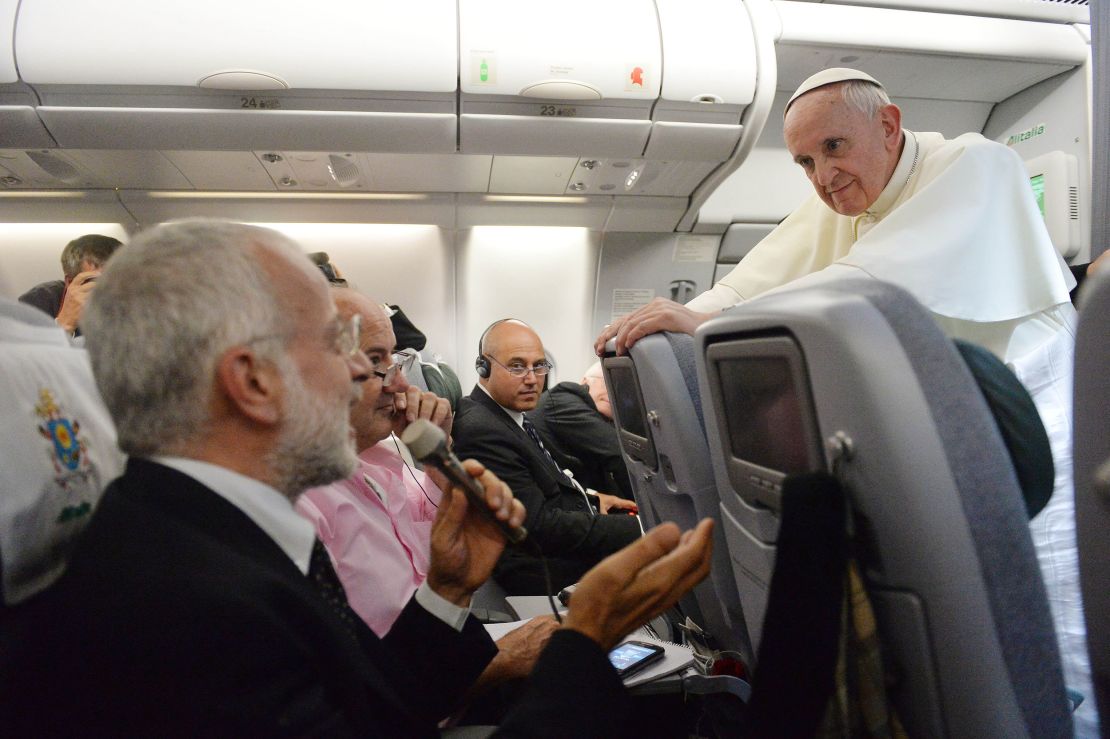
Francis also broke some progressive hearts when he reportedly used an anti-gay slur while speaking to Italian bishops at a conference. The Vatican later apologized for Francis’ language.
That apology was enough for DeBernardo, who leads the Catholic ministry advocating for LGBTQ+ inclusion. He says he wasn’t that bothered because Francis did not use the term in a formal church communication. He says Francis was the first pope to use the word “gay” instead of “homosexual,” which DeBernardo says is a more condescending and clinical term.
“I wasn’t as upset as others were because Pope Francis, like us all, was a product of his upbringing. His actions speak louder than (his) words,” he says.
What DeBernardo remembers more is a personal meeting he had with Francis. On a lark, DeBernardo says he wrote a letter to Francis on behalf of LGBTQ+ church members and requested an audience with the pontiff in Rome. Several weeks later, he received a letter from the Pope that said, in effect, come on by.
When DeBernardo arrived, he was he struck by the Pope’s relatively austere living quarters. He lived in a modest guesthouse in Vatican City instead of the papal apartments in the Apostolic Palace, the official residence of the reigning pope.
It was a working meeting for DeBernardo. He brought along church members who were transgender, and urged them to share their stories with Francis. The meeting was supposed to last about 10 minutes, but Francis gave DeBernardo’s group 40 more minutes. As members of the group told Francis about the plight of LGBTQ+ people in the church, including some suicide attempts, Francis clutched the cross around his neck and a look of anguish flashed across his face, DeBernardo says.
At other times, the talk drifted to lighter matters and the pope’s warmth and humor surfaced, he says.
“It was like having tea with your grandpa,” DeBernardo says.
At one point, a member of DeBernardo’s entourage told Francis that he was the face of God for so many people who had been hurt by the church.
“He didn’t mess a beat,” DeBernardo says. “He just pointed to his face and said, ‘God is not this ugly.”
A pope’s legacy doesn’t only depend on what he does. It also depends on something else: Did he appoint enough allies as bishops and as members of the College of Cardinals? Popes are chosen by the College of Cardinals, the church’s most senior leaders after the pontiff, and in this way a pope can posthumously influence church doctrine and the selection of his successor.
“This is where Francis is going to shine,” says Imperatori-Lee of Manhattan University.
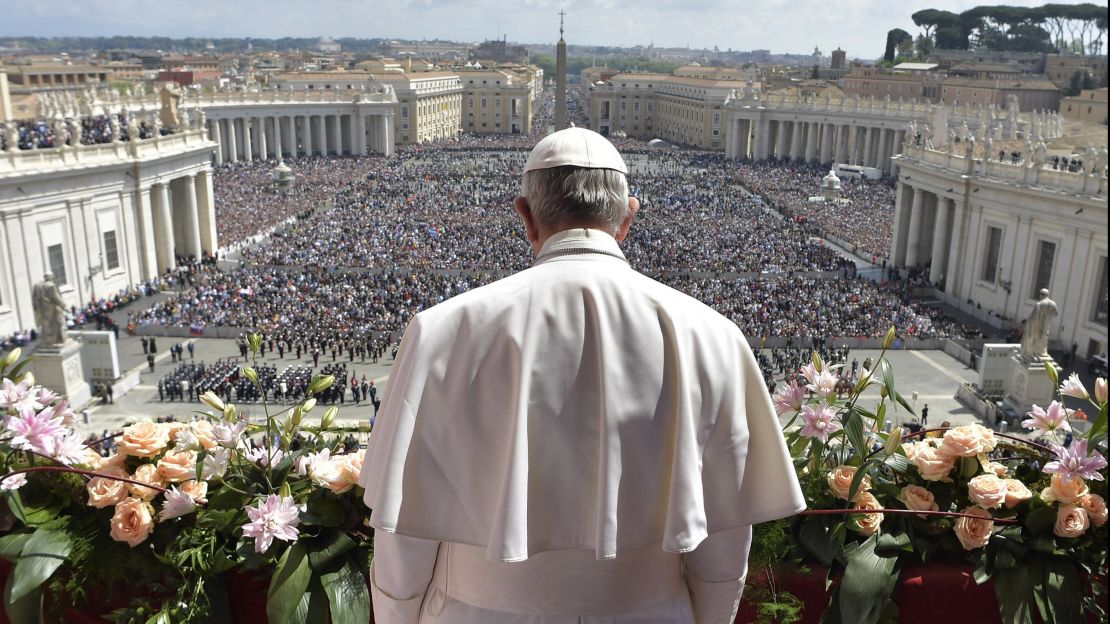
“The people he elected to the College of Cardinals and made bishops — the criteria for that were that they were pastors first,” she says, referring to cardinals who define themselves primarily as serving people. “They’re not career bureaucrats or climbers but more committed to their flocks. They’re humble and do not take themselves too seriously.”
That description could also apply to Francis. Despite his brilliant intellect — Jesuit priests are known for being the intellectual heavyweights of the church — many Catholics may most remember his warm smile and folksy manner.
Behind that smile, though, was a determined reformer. In a 2013 interview, Francis was asked about the most urgent need facing the contemporary church.
“I see clearly that the thing the church needs most today is the ability to heal wounds and to warm the hearts of the faithful; it needs nearness, proximity,” he said. “I see the church as a field hospital after battle. It is useless to ask a seriously injured person if he has high cholesterol and about the level of his blood sugars. You have to heal his wounds. Then we can talk about everything else.”
Francis took that warmth to millions of Catholics around the globe. It is a measure of his impact that he will be missed not only by Catholics but by many people who do not even believe in God.
In an age of brutal authoritarians, Pope Francis offered a different type of leadership. He wasn’t the pope that lived in a palace. He was the pope who seemed to be the most moved by those who lived on the peripheries.
John Blake is a CNN senior writer and author of the award-winning memoir, “More Than I Imagined: What a Black Man Discovered About the White Mother He Never Knew.”














































































